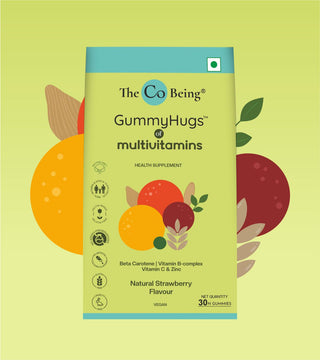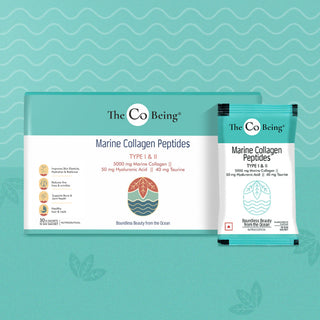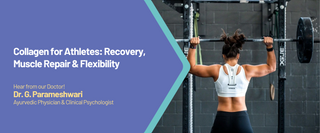Athletes push their bodies to the limit. Whether it’s high-intensity training, endurance sports, or heavy lifting, muscles, joints, and connective tissues are constantly under stress. While protein powders and amino acid supplements are staples in athletic nutrition, one powerful ingredient is often overlooked: collagen.
Once known mainly for its role in skincare, collagen is now gaining serious attention for its benefits in athletic recovery, muscle repair, and flexibility.
What Is Collagen?
Collagen is the most abundant protein in the human body. It forms the structural framework of connective tissues—tendons, ligaments, cartilage, and even muscle tissue. This makes it a foundational nutrient for anyone whose performance depends on physical resilience.
Why Athletes Need Collagen
1. Faster Recovery from Training & Injury
Collagen peptides provide amino acids like hydroxyproline, glycine and proline, which are essential for rebuilding tendons, ligaments, and cartilage damaged during intense exercise. Studies show collagen supplementation may:
-
Reduce post-exercise joint pain
-
Support faster tissue repair after microtears
-
Shorten recovery time between workouts
2. Enhanced Muscle Repair & Strength
While collagen isn’t a complete protein like whey, it complements other protein sources by supplying connective tissue–specific amino acids. This can:
-
Improve muscle recovery after strenuous training
-
Support lean body mass when combined with resistance exercise
-
Aid in maintaining healthy joints under heavy load
3. Improved Flexibility & Joint Health
Healthy connective tissue = better mobility. Collagen helps maintain the elasticity and resilience of tendons and ligaments, which can:
-
Increase range of motion
-
Decrease stiffness
-
Lower risk of injuries such as sprains or tears
What the Research Says
-
Joint Health: Clinical studies on athletes show collagen peptides reduce activity-related joint pain and improve function.
-
Tendon Strength: Supplementation combined with exercise has been linked to increased collagen synthesis in tendons, improving their load-bearing capacity.
-
Performance Longevity: By protecting joints and connective tissue, collagen may help athletes stay active and competitive longer.
How to Incorporate Collagen
-
Timing: Take collagen 30–60 minutes before training with a source of Vitamin C (like orange juice) to boost collagen synthesis.
-
Dosage: 5–15 grams of hydrolyzed collagen peptides per day is typical in studies.
-
Synergy: Pair with a balanced diet rich in protein, antioxidants, and omega-3s for optimal recovery.
Choosing the Right Collagen Supplement
Look for:
-
Hydrolyzed (or “collagen peptides”) for better absorption
-
Third-party tested for purity
-
Marine or bovine sources depending on dietary preference
-
Added Vitamin C or other cofactors for improved effectiveness
Other Ingredients That Help in Muscle Recovery
Collagen works even better when combined with key nutrients that support tissue repair, joint health, and protection from exercise-induced stress:
-
Hyaluronic Acid – Found in synovial fluid and cartilage; improves joint lubrication and may reduce stiffness after intense training.
-
Grape Seed Extract – Rich in proanthocyanidins; powerful antioxidant to limit exercise-induced oxidative damage to collagen-rich tissues.
-
Green Tea Extract (EGCG) – Anti-inflammatory and antioxidant; may reduce post-exercise muscle soreness and oxidative stress.
-
Alpha-Lipoic Acid – Potent antioxidant that regenerates other antioxidants (like Vitamin C and E); helps mitigate oxidative stress and support tissue repair.
-
Vitamin E – Fat-soluble antioxidant; protects cell membranes from exercise-induced oxidative damage.
-
Lycopene – Another antioxidant that may help lower inflammation and protect collagen from breakdown.
Together, these ingredients help create a strong environment for faster recovery and long-term joint health.
Our Recommendation: The Co Being Marine Collagen Peptides
Our hydrolyzed marine collagen peptides supply both Type I and Type II collagen.
-
Type II helps protect and maintain healthy joints and cartilage under intense training.
-
Type I supports strong, resilient skin, hair, and connective tissues.
Together, they offer a complete solution for athletes looking to enhance recovery, mobility, and overall performance resilience.
Final Thoughts
Collagen is no longer just a beauty buzzword—it’s becoming a must-have in sports nutrition. By supporting connective tissues, aiding recovery, and improving flexibility, collagen can help athletes train harder, recover faster, and reduce injury risk.
Incorporating a high-quality collagen supplement alongside a balanced diet and smart training may give you the edge you need to perform at your best—both now and in the long run.
For further guidance, Book Your FREE CONSULTATION With Our Expert Dr! or WhatsApp us on +91 9500775666 to schedule your consultation right away!



